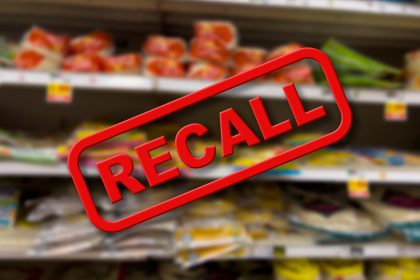Families across the nation are being urged to check their refrigerators immediately following a massive food safety recall that affects over 143,000 pounds of popular deli meat products. This urgent recall involves ready-to-eat bologna that millions of Americans regularly pack in lunch boxes, serve at family gatherings, and rely on for quick meal preparation.
The recall represents a significant food safety concern that extends far beyond a simple labeling error, potentially affecting countless households that have unknowingly purchased and consumed these mislabeled products over the past several months. The scope and duration of this recall make it one of the most significant deli meat safety alerts issued this year.
Food safety officials are treating this recall with utmost seriousness due to the widespread distribution of these products and the potential health implications for consumers with specific dietary restrictions or allergies. The mislabeling issue affects multiple popular bologna varieties that have been distributed nationwide through major retail chains and wholesale distributors.
The scope of the dangerous recall
The recall encompasses an alarming 143,416 pounds of ready-to-eat deli bologna manufactured by Gaiser’s European Style Provisions Inc. between March 20 and June 20, 2025. This extensive timeframe means that affected products have been circulating in the marketplace for months, potentially reaching millions of consumers across the country.
The recalled products were distributed nationwide to both wholesale and retail locations, making it nearly impossible to determine exactly how many families may have been affected. The widespread distribution network means that these mislabeled products could be sitting in refrigerators, pantries, and commercial food service establishments from coast to coast.
What makes this recall particularly concerning is that many of the affected products were rewrapped and relabeled by individual stores, making identification more challenging for consumers who may not recognize the original manufacturer information. This practice of in-store processing has complicated efforts to track and remove all affected products from circulation.
The recall affects seven distinct product varieties, each containing different undeclared ingredients that pose potential risks to consumers with dietary restrictions, religious observances, or specific food allergies. The variety of affected products increases the likelihood that typical American families have unknowingly purchased these items.
Identifying the recalled products in your home
Consumer safety depends on accurately identifying whether purchased bologna products are part of this dangerous recall. All recalled items bear the establishment number “EST. 5285” on their USDA mark of inspection, which serves as the primary identifier for consumers checking their refrigerated products.
The first product to check is Family Tree Bologna Veal, which appears in vacuum-packed packages but actually contains undeclared pork. Consumers who keep kosher, follow halal dietary laws, or avoid pork for personal reasons face serious concerns if they have unknowingly consumed this mislabeled product.
Babushka’s Recipe Chicken Bologna, sold in plastic-wrapped packages, also contains undeclared pork despite its chicken-focused branding. This mislabeling could affect individuals who specifically choose chicken products while avoiding other meat sources for dietary, religious, or health reasons.
Fancy Bologna represents another concerning product containing both undeclared beef and chicken, meaning consumers believed they were purchasing one type of meat product while actually consuming multiple undeclared animal proteins. This type of mislabeling completely undermines consumer choice and dietary planning.
Gaiser’s Russian Brand Doktorskaya Bologna, packaged in vacuum-sealed containers, contains undeclared beef that isn’t reflected anywhere on the product labeling. The ethnic branding of this product may have attracted consumers with specific cultural dietary preferences who now discover their purchased product doesn’t match their expectations.
Health implications and consumer risks
While food safety officials classify this as a Class III recall, indicating low risk for adverse health effects in the general population, the undeclared ingredients pose significant concerns for specific consumer groups. Individuals with religious dietary restrictions face the distressing reality that they may have unknowingly violated their deeply held beliefs about food consumption.
People following kosher or halal dietary laws rely completely on accurate food labeling to maintain their religious observances. Consuming undeclared pork or other prohibited ingredients can cause serious spiritual distress and represents a fundamental violation of trust between manufacturers and faith-based consumers.
Food allergy sufferers face potentially life-threatening consequences when products contain undeclared ingredients. While the recalled bologna products don’t involve common severe allergens like nuts or shellfish, some individuals do have allergies to specific meat proteins that could trigger reactions ranging from mild discomfort to serious health complications.
Individuals following specific dietary protocols for health reasons, such as those avoiding certain meats due to cholesterol concerns or digestive issues, may experience unexpected physical reactions after consuming these mislabeled products. The inability to accurately track food intake due to mislabeling can disrupt carefully planned nutrition programs.
Immediate action steps for consumers
Anyone who has purchased bologna products in recent months should immediately check their refrigerated items for the establishment number “EST. 5285” and any of the recalled product names. Time is critical, as some families may have already consumed portions of these products or may be planning to serve them at upcoming gatherings.
Do not consume any products that match the recalled item descriptions, even if they appear safe or have been stored properly. The mislabeling issue affects the fundamental composition of these products, making consumption inadvisable regardless of their apparent quality or freshness.
Building relationships with local retailers who prioritize food safety and maintain good communication about recalls can provide additional protection for your family. Stores that proactively notify customers about recalls demonstrate commitment to consumer safety that goes beyond minimum requirements.
Teaching family members, especially teenagers who may prepare their own meals, about food recall basics and the importance of checking for alerts can extend protection throughout your household and help create lifelong food safety awareness habits.













